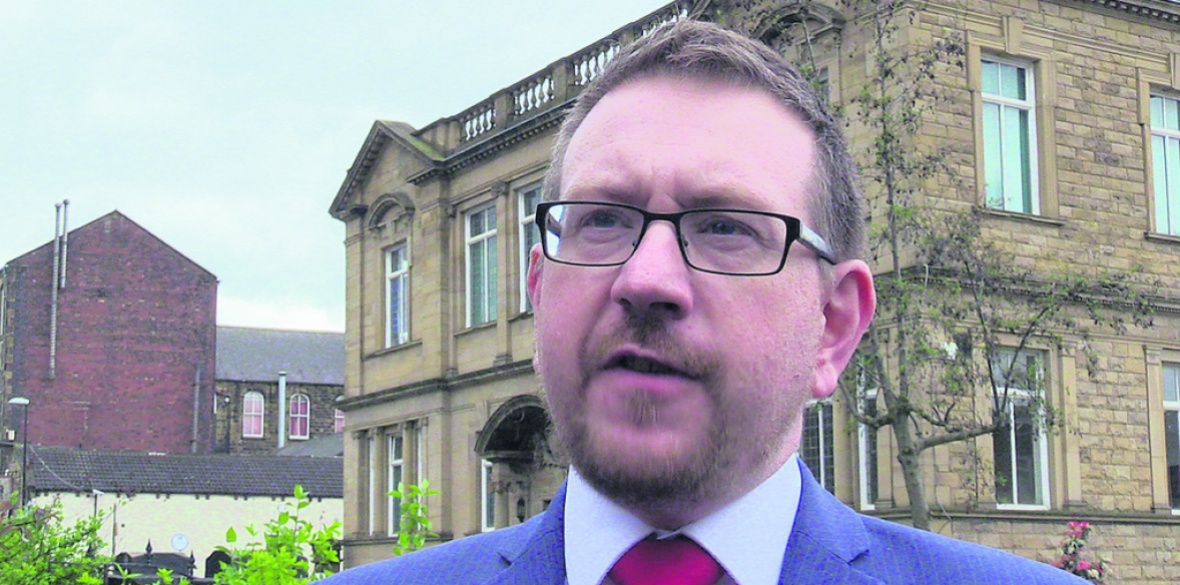This is the last article you can read this month
You can read more article this month
You can read more articles this month
Sorry your limit is up for this month
Reset on:
Please help support the Morning Star by subscribing here
THE Peterloo Massacre casts a long shadow on our national history. The horrendous murder of men, women and children peacefully gathered at St Peter’s Field to demand political representation for ordinary people was a pivotal moment in our shared story.
Whilst Peterloo has all too often been sidelined or ignored in mainstream accounts of British history, the thousands that gathered that day paved the way for all of us. Without them, it is possible that working men and women would have had to wait even longer than they did to get the right to vote.
Beyond this national significance though, the events of August 16 1819 have an even greater significance for those of us in Greater Manchester. For us, Peterloo is not simply an important part of radical English history, but also significant to our own local story.
Peterloo didn’t come out of nowhere. From the 1760s, when the Spinning Jenny was invented in nearby Oswaldtwistle and the canals arrived, Manchester and the surrounding towns kick-started the industrial revolution, with cotton mills springing up all over the landscape. At the same time, the Manchester Academy became a centre of radical thought, associated with non-conformist Christianity.
Serious recession in the textile trade, combined with the lack of representation in Westminster for the fast-growing city and many of the surrounding towns, caused widespread discontent that in turn led to thousands attending the protest at St Peter’s Field. Many of these people were working and living in terrible conditions, despite the wealth that they were helping to create.
These protests drew people from across the region, as evidenced by three residents of one of the towns in my constituency – Dukinfield. Joseph Collins was a 21-year-old weaver who took the seven mile journey to Manchester to take part in the demonstration. Beaten by constables, knocked down and trampled by one of the cavalry horses, fellow protesters carried him in “an insensible state” to the infirmary.
He was so badly beaten that he was unable to work for months. Another Dukinfield resident, 70-year-old Joseph Buckley, received a sabre-cut to the top of his head and an injury to his legs sustained when the crowds fled from the oncoming cavalry.
On the other side, Dukinfield was also previously home of one of the magistrates who called in the cavalry – the Reverend William Robert Hay, who had previously lived at Dukinfield Lodge.
The town is also the final resting place of Joseph Rayner Stephens, who witnessed the Peterloo Massacre as a young man and then spent his life pushing for factory reform and repeal of the Poor Law. Even in his final days, Stephens was involved in radical activism, taking up a range of causes, including an eight-hour-day factory Bill.
These sorts of local connections are not unique to Dukinfield, they are very important to people across Greater Manchester and ensure that we never forget the terrible events of Peterloo.
If you look at the lists of those killed or injured on that day, you’ll see people from all over Greater Manchester – Bury, Oldham, Eccles, Salford, Hulme – the list goes on. This makes us feel the legacy of Peterloo very strongly and also ensured that the radical tradition that had developed in Manchester before the Massacre would continue to grow.
It led, for instance, directly to the establishment of the Manchester Guardian just two years later, as well as sowing the seeds for both the Chartist and trade union movements, from which the Labour Party and broader labour movement would develop. Manchester also hosted Friedrich Engels and Karl Marx who developed many of their theories after spending time with the working people of the city.
Whilst for many years the legacy of the Peterloo Massacre was overlooked, we in Greater Manchester have kept the story – and with it the lessons – alive.
So where are we two hundred years on from Peterloo? The central aim of the protesters who gathered at St Peter’s Field has now been realised – there have been a number of incremental reforms to parliamentary representation thanks to consecutive waves of radical and socialist activists, so that today the franchise is not limited to those who are wealthy and powerful.
However, there is further to go – many marginalised communities turn out in considerably lower numbers and 16 and 17-year-olds are still unable to vote in Westminster elections. On top of this, the Tory government is pressing on with voter ID laws that are likely to disenfranchise thousands across the country – a trick that they learned from the US Republicans.
It is important then that in commemorating the bicentenary of the Peterloo Massacre we remember why tens of thousands of ordinary people travelled for hours to attend that protest. They wanted equal rights and a say in how their country was run. Whilst we’ve come a long way, we must not be complacent and must stand in solidarity with anyone being denied their rights or their place as equal members of society.
Andrew Gwynne is Labour MP for Denton and Reddish.











